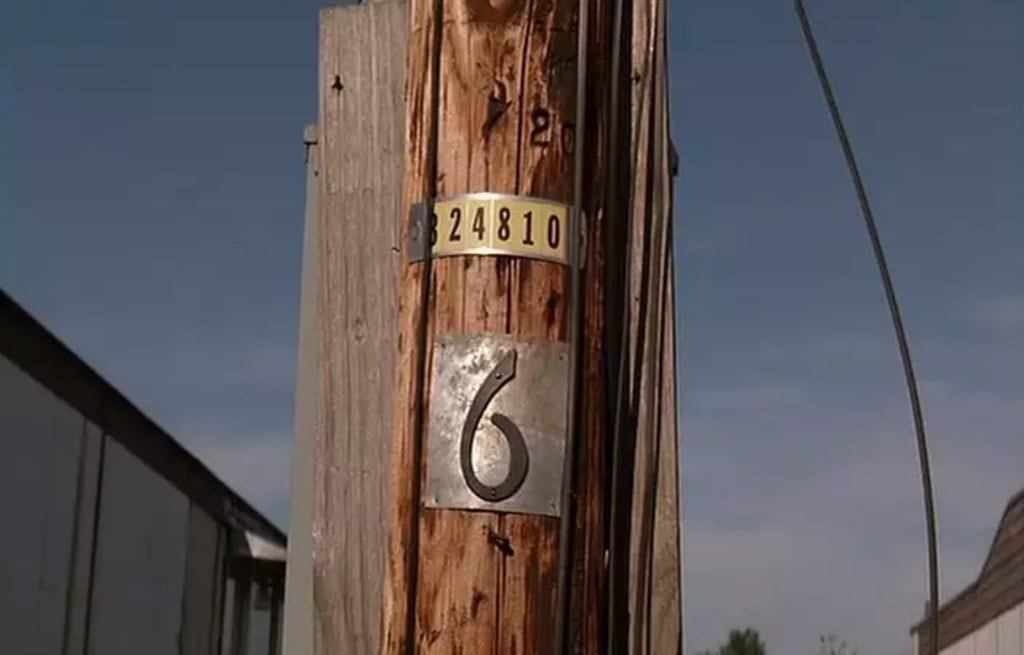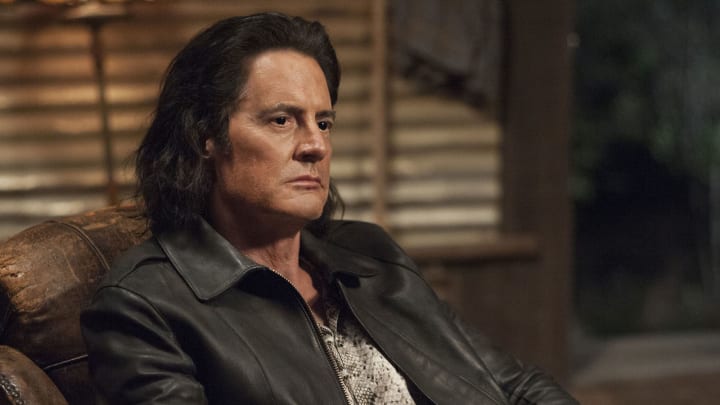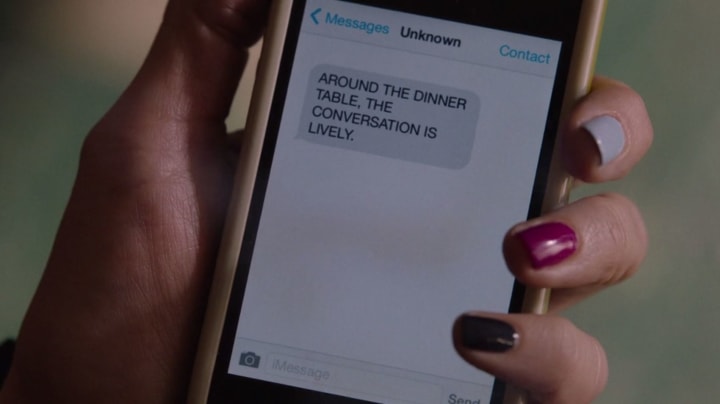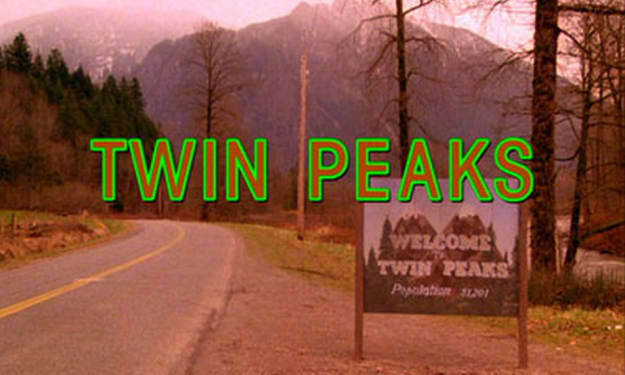Twin Peaks Revisited: Technological Magick
Looking at the Relationship Between Technology and Mr. C. In 'the Return,' and What It Says About the Information Age

Thematically Twin Peaks is interested in exploring profound truths behind the nature of our existence, and perhaps none more curiously than the role of electricity in our world. In a broad sense electricity is mostly thought of in our time as an energy source, one that powers virtually all modern technology, from lighting and heating our homes to powering every kind of information sharing device, from TV to radio to computers. You only need to spend a few hours in a house or office during a power cut to realise just how reliant on electricity our current society & culture is.
But electricity, itself a set of phenomena that forms part of electromagnetism, plays a far more significant role in our existence. In physics, electromagnetism is one of the four fundamental interactions, also known as forces, in nature - these are interactions that do not appear to be reducible to more basic actions. Electromagnetic force is responsible for chemical bonding, the process by which chemical compounds are created, and thus for determining the the internal properties of virtually all physical objects, meaning the creation of most ordinary matter is the result of electromagnetic force. So electricity isn't merely one of the building blocks of reality, but a force that shapes those blocks and defines the way our reality looks, and this is where I believe Frost & Lynch's interests lie.
Yet the scientific description of electricity is still limiting in the context of Twin Peaks. Thankfully Frost & Lynch have never let the parameters of human understanding get in the way of their own perceptions and beliefs, and how these inform their particular vision. For them there are other ways the forces of nature can be manipulated or controlled, explanations for which exist outside means of understanding such as science and religion, and for which there is only one suitable term: magic.

"Glowing bright obsidian"
"Magick is the Science and Art of causing Change to occur in conformity with Will."
Aleister Crowley on the definition of Magick (his preferred spelling of magic)
When looking at the relationship between magic and technology in Twin Peaks, there is one character who demands our focus: Mr. C., Dale Cooper's deadly doppelganger and one of 'Peaks most adept magic users. Aleister Crowley was an infamous English occultist and founder of the spiritual philosophy Thelema (in which Frost clearly has a interest - see the entries on Jack Parsons in The Secret History); his definition of magic(k) seems apt for Mr. C., a being driven so purely by desire, by what he wants. Crowley believed that 'we have the capacity to produce change in our environment and that the only requirement to prompt this is to follow one's path; this is, to do as we wish'(1), and Mr. C. can be seen as the metaphysical embodiment of this element of Cooper's personality. Cooper of the original series was directed on his path by his intuition, his instinctive feelings of what is right and a sense of heroic selflessness; unfortunately this eventually led him to a confrontation with Windom Earle in which Cooper did not embrace his self-determination, the force of will required to overcome Earle, instead sacrificing himself and thus ceding to Earle's will. Refusing to accept this part of himself results in the creation of the doppelganger, philosophically indebted to the Jungian 'shadow-self', with the unrealised and undesirable aspects of the personality becoming manifest, and in Cooper's case merging with the demonic entity BOB.
As in the real world, technology in Twin Peaks and especially in relation to Mr. C., is primarily a means of transmitting information; we frequently see him use a phone for calls and text, as well as hack government databases with his brief-case computer, both pretty standard functions if the second requiring some skill. But Mr. C. also does things with tech that simply aren't possible - hacking a prison security system via a touch-pad phone, transmuting an objects physical form with a coded message and communicating with an entity that's probably not even on the physical plane via some kind of supernatural modem.
So why is Mr. C. able to take any piece of tech and use it to convey information, to communicate, in virtually any way he requires? Because in Twin Peaks, all modern technology is really just a conduit, a means for electronically transmitting information. The physical object is rendered irrelevant in Mr. C.'s hands; his magic can manipulate the way the information is transmitted and received, outside the limitations of science - technology's function changing in conformity with his will. Mr. C.'s mastery of machines seems wholly appropriate for a being that came into existence in the '90's, and grew to power in an age of unprecedented technological advancement - but does this alignment say something more about how Frost & Lynch feel about the Information Age?
We live in a dark, dark age....

"If there's one thing you should know about me, Ray, it's that I don't need anything.I want.And I want that information."Mr. C., Twin Peaks: The Return, Part 2
Throughout recent history technological evolution has been driven by our desire to communicate, to share information, quicker and more efficiently, leading to the digitization of many aspects of our lives; from finance, to personal relationships, to our jobs, it's all been re-written in the language of computers. This has lead to a fundamental shift in the nature of our society: information is now our most valuable commodity. A world where power and influence is dictated by how much data you hold though has lead to widespread abuse. Corporations and institutions fervently gather and hoard it on mass, using it to surveil the populace, to control and dictate as much as protect, and in the process eroding many people's sense of privacy - once information becomes digitised, it never really goes away, enabling the most intimate details of your life to be exposed and used against you. Information has even been used a weapon in a 21st Century Cold War - only last year whilst The Return aired, Russia was accused of hacking, digitally manipulating data, to try to undermine the democratic voting process in the US.
Mr. C.'s embodies many of the worst aspects of the Information Age, with his rampage across America portrayed as an endless search for, and accrual of, information. He bluntly lays out his motivation to Ray in one of his first scenes stating, "I don't need anything. I want. And I want that information", and then proceeds to spend the series coercing, threatening and outright brutalising anyone that stands in the way getting his hands on it. When he finds himself in a vulnerable situation at Buckhorn prison, Mr. C. weaponises compromising and seemingly unknowable intel to blackmail the shell-shocked Warden Murphy - "Remember the dog's legs". But beyond this making Mr. C. a negative commentary on the times, his relentless pursuit of knowing makes him symbolically the Antichrist of Twin Peaks as a concept, the desire to have the answer to everything antithetical to 'Peaks deep rooted theme of the enchantment of mystery.
But if Mr. C. is the enemy of mystery, then mystery proves to be his biggest nemesis too. In the end, Mr. C. is undone by his desire to know everything, as certain things are kept impossibly out of his reach - on his quest to find answer to one of 'Peaks most confounding enigmas ("Who is Judy?!"), he is ultimately left frustrated by the slippery Phillip Jeffries, himself a gatekeeper of secrets. And when Mr. C. does eventually get his hands on the co-ordinates he desperately seeks, they lead to traps that kill his only son and eventually a confrontation with the forces of Good that overcome him and BOB. If there is any lesson to be learned from Mr. C.'s information-hungry ways, it's that in Twin Peaks world, and our own, some things are best left unknown and some mysteries best left unresolved.
About the Creator
James Giles
Writer, confessed geek and pop culture enthusiast, loves film, TV and video games. Blogged and written for various websites on all the above.






Comments
There are no comments for this story
Be the first to respond and start the conversation.